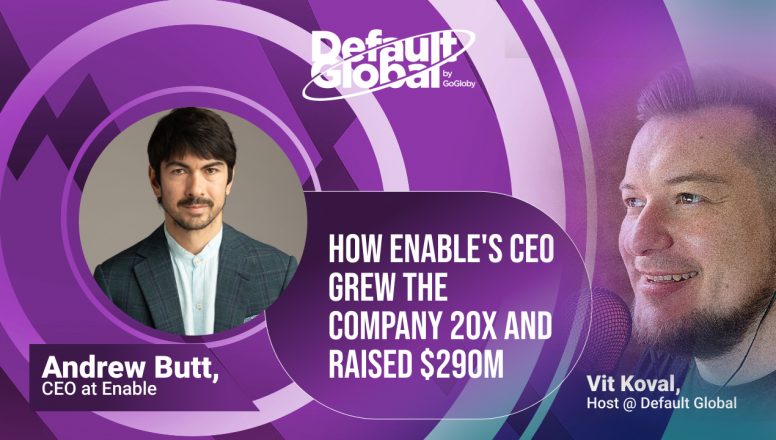Meet Natasha Kehimkar, CEO & Founder at Malida Advisors:
Natasha Kehimkar, CEO & Founder of Malida Advisors, brings over 25 years of expertise in people, talent, and DEI across diverse corporate landscapes. Her career spans industry giants like Pfizer and Johnson & Johnson, agile companies like Ansel and OpenTable, and early-stage startups such as Garden Health. Natasha’s holistic HR roles, including executive team participation, offer a unique perspective on global hiring, remote work, employment compliance, and employment law. Her board roles in both nonprofit and corporate sectors enrich her insights into HR and corporate governance. Natasha is a key influencer shaping the future of work globally.
Listen Up: Natasha Kehimkar, CEO & Founder at Malida Advisors — Full Podcast Episode on Spotify
Watch Now: Vit’s In-Depth Talk with Natasha Kehimkar
Quick Read: Natasha Kehimkar, CEO & Founder at Malida Advisors, Interview Highlights
In a recent episode of Default Global, I had the pleasure of discussing the intricacies of global business with Natasha Kehimkar, CEO & Founder at Malida Advisors. With a rich background in talent management, diversity, equity and inclusion (DEI), and executive coaching, Natasha offered insightful perspectives on fostering an inclusive corporate culture, overcoming barriers in global hiring, and leveraging investor resources for international expansion.
Building an Inclusive Culture
The first key topic of our conversation revolved around the creation of an inclusive culture for employees of various backgrounds.
According to Natasha, “Inclusive leadership is leadership.”
By focusing on inclusion first, organizations can make better use of the talent they already have. Natasha underlined the importance of mitigating bias in core processes and taking specific actions to make teams more inclusive.
As she stated, “Diversity is a lagging indicator… focus first on inclusion, look at equity and the diversity will follow.”
Avoiding One-Size-Fits-All Management Styles
We further delved into the challenge of avoiding a one-size-fits-all approach in managing global remote teams. Natasha advised leaders to be mindful of time zones, rely on asynchronous communication, and be proactive in providing opportunities for career development to all team members.
“Don’t rely on the same people for the same things,” she said, indicating the importance of diversifying task assignments.
Delivering Tough Feedback with Love and Care
Another crucial aspect we discussed was delivering difficult feedback in a constructive and caring way. Natasha stressed the importance of specificity, transparency, and providing room for further discussion.
“I think it’s much more valuable and it really shows thoughtful intention when we sit down with someone and have a conversation that’s based on the true issue that you want to discuss,” she commented.
Global Hiring and Expansion
Natasha also shared some common mistakes companies make when hiring outside their country. She noted that many companies still try to do it on their own, which can be time-consuming and challenging. She advised working with partners, such as Oyster, to accelerate global expansion and streamline the hiring process.
From an investor’s point of view, Natasha suggested entrepreneurs considering global expansion to think about what is best for the company and not just their personal comfort. She also emphasized the importance of using investor resources wisely to make the best decisions for international business expansion.
The Future of Remote Work
As for the future of remote work, Natasha believes it’s time for organizations to accept the changes brought about by remote work and think about the new culture they want to create.
She concluded, “It’s about time that we start opening our eyes and recognizing what the differences are and building for that as opposed to building for what was.”
In conclusion, my conversation with Natasha Kehimkar was a deep dive into the challenges and opportunities of global business, particularly in the context of remote work. Her insights underscored the importance of inclusion, diversity, careful feedback, and thoughtful global expansion in today’s business landscape.






